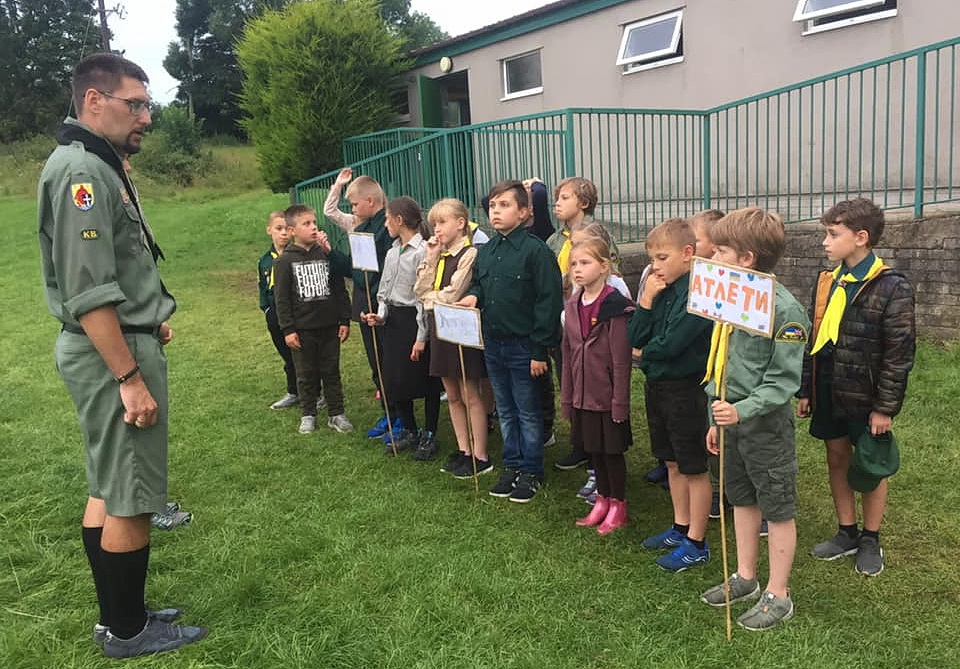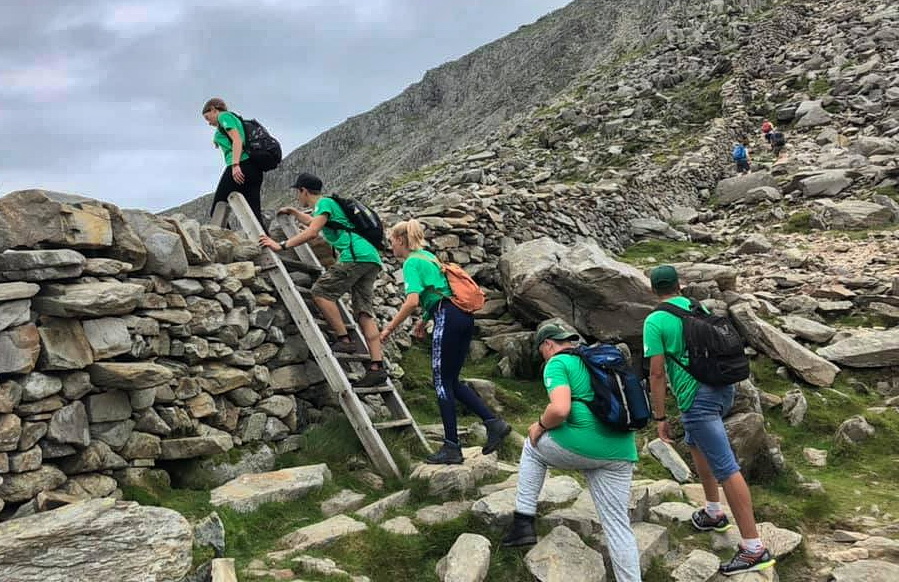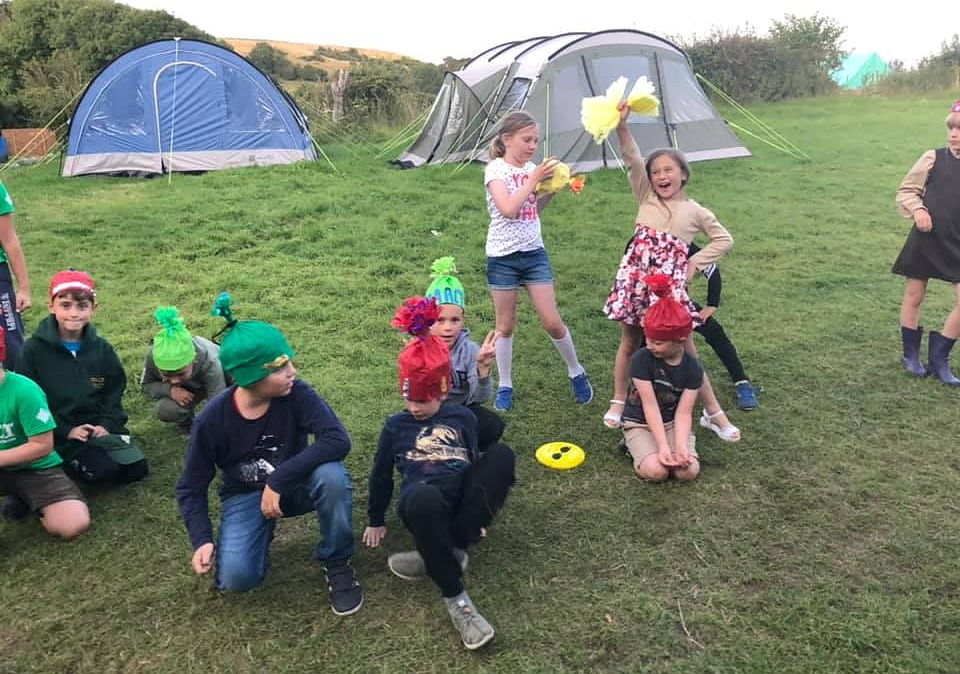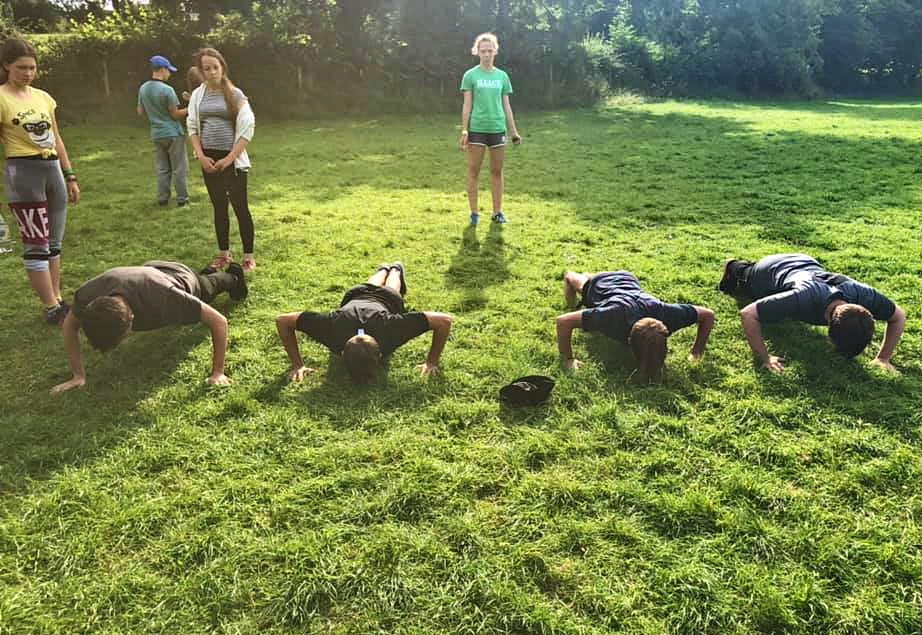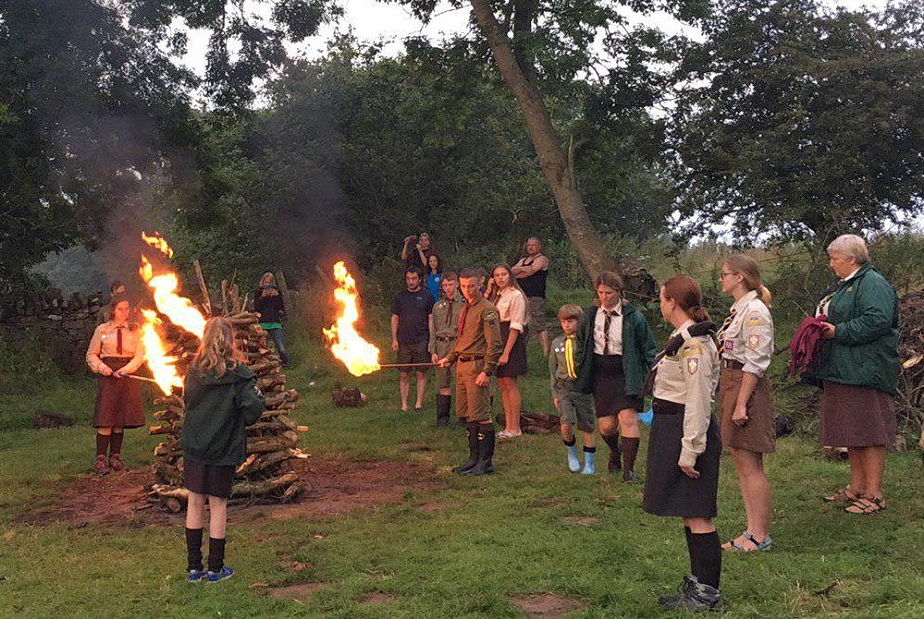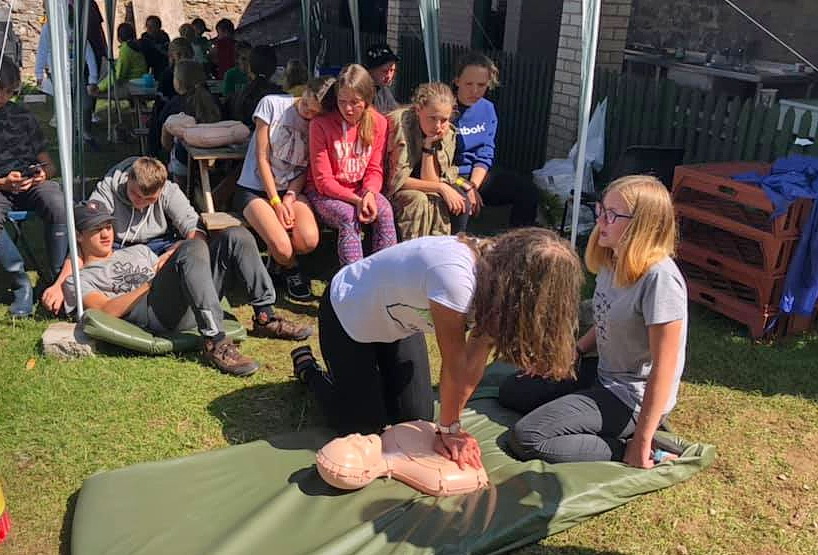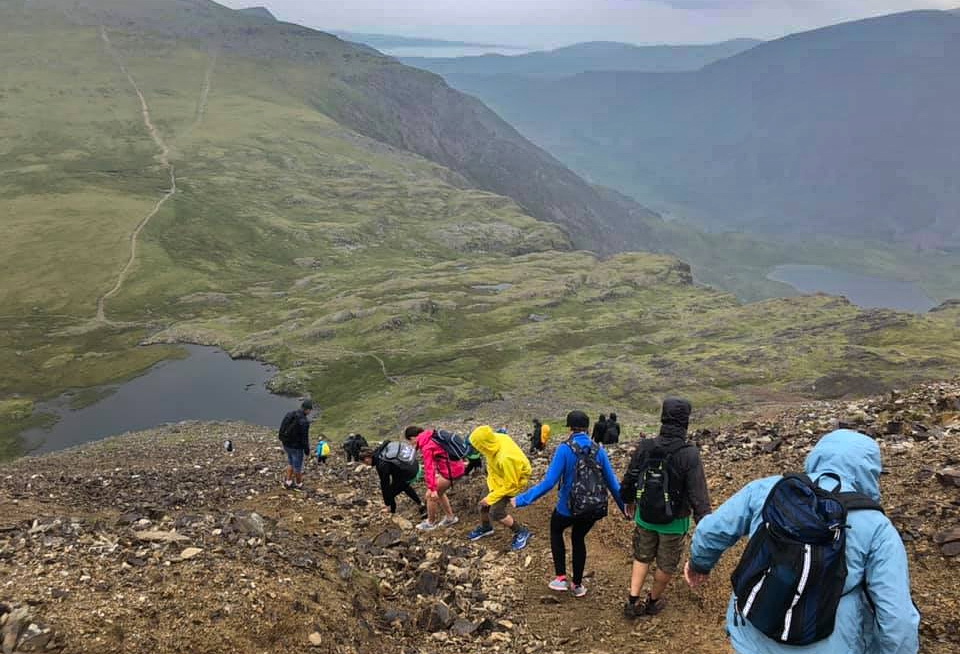NORTH WALES, United Kingdom – Seven children of Ukrainian soldiers whose fathers were killed in Russia’s war against Ukraine spent two weeks in a traditional scouting camp in Wales. On Aug. 12, they flew back home to Ukraine.
Volunteers from the Army SOS charity organization raised $8,400 to make the vacation happen. Two weeks ago, the Kyiv Post went to North Wales to visit the scouts-to-be. The camp Verkhovyna, named after the Carpathian Mountains’ highlands, is located around an hour drive from Liverpool near the tiny village of Llysfaen. The site has limestone hills to hike, forests to explore, and the Irish Sea to swim in. The camp consists of a few buildings and dozens of tents.
Verkhovyna was established by Ukrainians who came to Great Britain from World War II refugee camps in Germany. They were members of Plast, a patriotic youth education organization founded in Ukraine in 1911, and wanted to revive the group in their new homeland. Surrounded by sheep farms, Verkhovyna has been welcoming young scouts for 70 years.
The children of slain Ukrainian soldiers came to the camp on July 26, making their first visit to Britain.
“It is going to be really interesting. We are having three big trips to the mountains, one trip to the sea, and one to the nearby village,” Valeria Likhogrud. 15, of Dnipro told the Kyiv Post. She is the daughter of Andriy Likhogrud, a senior lieutenant and a platoon commander in the 40th Battalion called Kryvbas. He fought in the Battle of Ilovaisk in August 2014. He became one of 366 Ukrainian soldiers killed after the Russians tricked them into surrender with false promises of safe passage.
Kira Voronova, 13, a daughter of slain soldier Serhiy Voronov, a police officer from Dnipro-1 Battalion, was another camper. She was looking forward to seeing London. “I want to see the London Eye,” she said, referring to an observation wheel on the bank of the Thames River.
Another child of a slain soldier, Illya Chernysh, 11, was looking most forward to hiking. His father Stanislav was stabbed to death by an attacker in his home city of Kagarlyk, a Kyiv Oblast city of nearly 14,000 people, after returning from the war front. “I have never gone camping before. Should be beautiful – the landscapes, you know,” Illya said about his first trip abroad.
Camp counselors say they crafted an interesting program. “The older kids have their own program in various fields of practical scouting. They are learning how to tie scouting knots, apply them in fields, survival principles, and, of course, how to make a fire using three matches only,” said camp counselor Olga Mykhalska.
There are lectures in history and other subjects, Mykhalska said.
The schedule for younger kids involved more sports. “Every day they are introduced to the new kind of sports, its history in the form of a game, the rules. Then they practice and at the end of the camp there are Olympics for every kind of sports – football, basketball, ping pong, and other ones,” said Vitaliy Mykhailytsya, another camp counselor. “We are also having a recreation of Ukrainian traditions – Ivana Kupala night with the singing of Ukrainian folk songs, jumping over a bonfire, dressed in Ukrainian embroidery shirts, of course. Everything as it has to be.”
The idea of bringing the children to Great Britain belonged to an Army SOS volunteer, Ukrainian Mykhaylo Yatsyshyn, who has lived in London for 17 years. He is a manager of security in a sports and media company.
“I asked Ukrainian diaspora in London for help. Everybody seemed to like the idea so people started to react and donate as much as they can. There were different sums like £20, £50, but sometimes much bigger. There is an organization here called the Ukrainian Radio in London – they donated a lot. Another charity here, Dobro Fest, gave us £1,000, which was a big help,” said Yat. “My personal contribution was to volunteer at the company called Event Fest, which sells tickets to Ukrainian events in the UK. They usually donate to the army from 10% to 20% of the ticket cost. I used to sell their tickets to raise more money for our project.”
Army SOS would not have been able to raise the sum needed without the help of the Ukrainian diaspora in the UK, the volunteers said.
Artem Palyutin, an Army SOS volunteer in Kyiv, said it’s more difficult to raise money as Russia’s war drags on. “We will definitely organize something like this next year, but only if the Ukrainian diaspora in some country invites us and helps us financially. Otherwise, we just will not be able to sponsor it ourselves,” he said.
Last year Army SOS organized its first trip abroad for the children of Ukrainian soldiers. The kids went to Spain to spend two weeks at the invitation of Ukrainian diaspora there. Brothers Voytsekhovskiy, Ruslan, 8, and Valeriy, 10, were among those who visited Spain last year.“We were swimming in a sea, they took us to the zoo, aquapark, amusement park, museum, and a dolphinarium, where there were not only dolphins but turtles and fish – liked it a lot,” recalled Valeriy.
Their father, Yevhen Voytsekhovskiy, served as a soldier at the Aidar Battalion. He was killed in 2014 in Schastiya, a city in Luhansk Oblast, when his checkpoint was attacked by a Russian-backed sabotage group. It came undercover pretending to be a Ukrainian unit and started firing from machine guns.
“Ukraine forgets about these kids, trust me. They are the children of war, they felt so much and they carry that on. I want them to feel attention, I want them to feel someone needs them, they are not left alone,” said Yatsyshyn.
